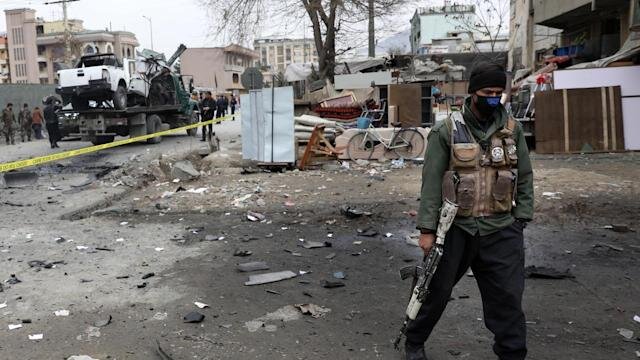There are some important points regarding the recent terrorist attacks in Afghanistan, the most important of which are discussed below:
First point: Daesh and its affiliates have formally claimed responsibility for most of the terrorist attacks in Afghanistan; This shows that Afghanistan’s field and political developments are moving in a direction that could pave the way for the “revival of Daesh” in the country.
Daesh, which has been largely eliminated in Iraq and Syria and is facing a landless challenge, is turning Afghanistan into its “new hotbed of insurgency.” In recent years, following the destruction of Daesh in Iraq and Syria, the remnants of the US-backed terrorist group have been deployed in parts of northern Afghanistan.
The resurgence of Daesh in Afghanistan, as a country in a “transitional state”, is a real threat not only to Afghanistan but also to the surrounding countries in terms of national security. Therefore, vigilance in this regard is a “double necessity”, especially for the Taliban and the countries of the region.
Second Point: Shia and Sunni gathering centers have been “targeted” among the targets of these terrorist attacks. These crimes against the Shias show that groups are working to genocide the “Hazara ethnicity” and “take revenge” on them while destroying the security of the Shias in Afghanistan; Because Afghan forces, including the Hazaras, have played an effective role in defeating Daesh in Syria!
The attacks on Sunni Sufi sects, who are ideologically similar to Shias, also indicate a conspiracy to “provoke religious-sectarian faults” and “sedition” in the country.
Third point: Despite the establishment and beginning of Taliban rule, extremism and terrorism in Afghanistan have not disappeared. Recent events show that the Taliban have not performed well in strengthening their security, intelligence, and counter-terrorism units to contain Daesh and other elements that undermine Afghanistan’s stability and security.
One of the important mechanisms that the Taliban must consider in order to ensure public security is to avoid monopolies and interact with political parties, groups and currents to achieve an inclusive government. Moving towards an inclusive government and involving others in the government will enhance the combat, intelligence, security, logistics, etc. capabilities to curb terrorism and ensure stability and security throughout Afghanistan.
In addition, the Taliban can benefit from the “effective experience” of neighboring countries, especially the Islamic Republic of Iran, which has valuable security and military capabilities and experience in the fight against terrorism and Daesh. The President of the Islamic Republic of Iran has also announced our country’s readiness to cooperate and use all means to counter the threat of Takfiri terrorism and prevent the recurrence of these catastrophes and tragedies in Afghanistan.
Fourth point: The Taliban have a “direct responsibility” for the recent terrorist attacks and the security of the Afghan people, both Shias and Sunnis. The loss of security of the Afghan people, including the Shias, is unacceptable, and Tehran holds the Taliban responsible.
Fifth point: Most of the reasons for the recent terrorist incidents should be sought outside the borders of Afghanistan. Improving economic indicators and facilitating investment processes with foreign countries such as Russia, China and Iran is one of the important achievements of stability in Afghanistan; This is something that the United States does not tolerate because of its “rivalry and hostility” with these countries.
In addition, the “revival of Daesh” is one of the “important strategies” of the United States in the “post-expulsion” period from the region. Daesh is a “tool” and a “weapon” to create insecurity and transfer it to a country that has long borders with Iran on the one hand and is neighbor to China and Russia on the other as the US’s most important strategic and military rivals in the world.
Sixth point: The recent terrorist attacks have severely questioned the Taliban’s performance, and as the Taliban seeks regional and international legitimacy, the emergence of these insecurities is a “major weakness” for it. The Taliban, seeking its political and legal recognition by the countries of the region and the world, must first ensure the security of the Afghan people and reassure the public opinion of the region and the world that such incidents will not happen again and that the perpetrators will be dealt with seriously.
Finally, it should be emphasized that the United States and the Zionist regime and its regional partners are the “main winners” of the recent events in Afghanistan. There is nothing better for the United States and the Zionist regime than the spread of insecurity, instability and terrorism in Afghanistan. At the same time, these attacks can divert the public opinion of Muslims and Islamic countries from the racist policies and the great events that are taking place in the occupied territories.










0 Comments